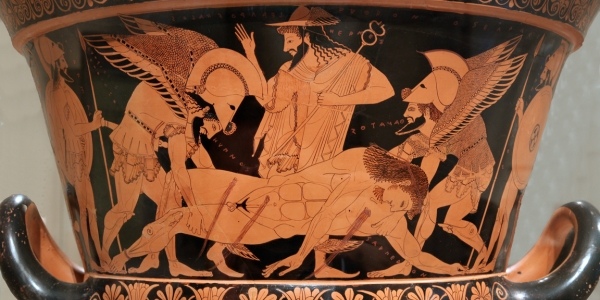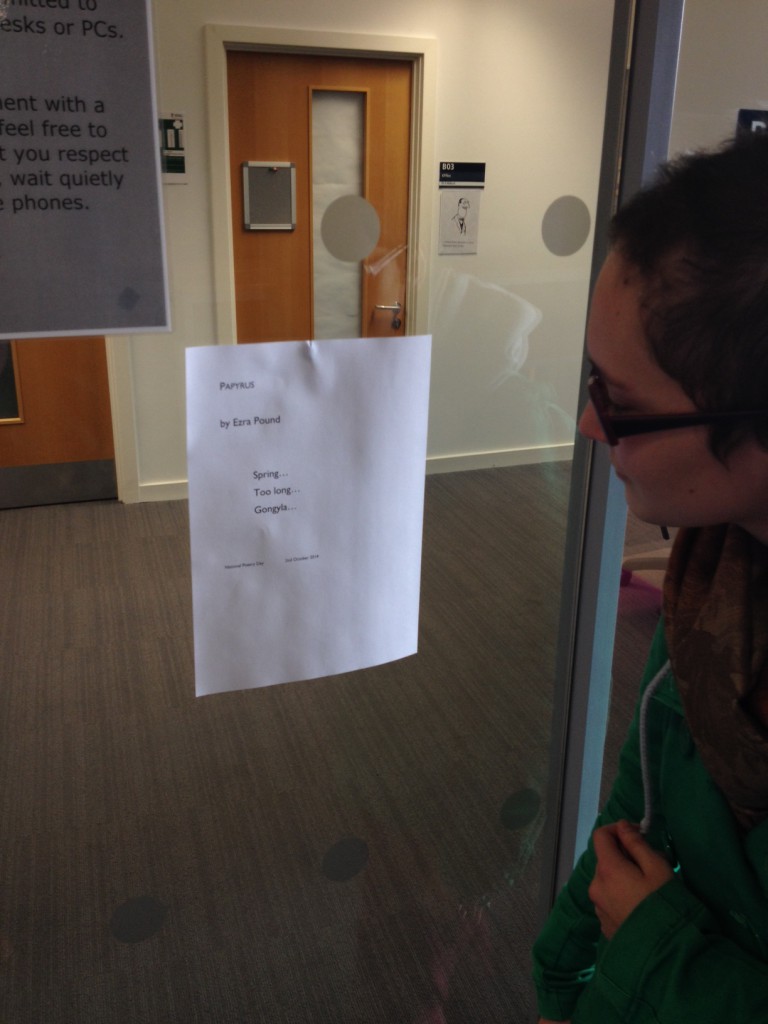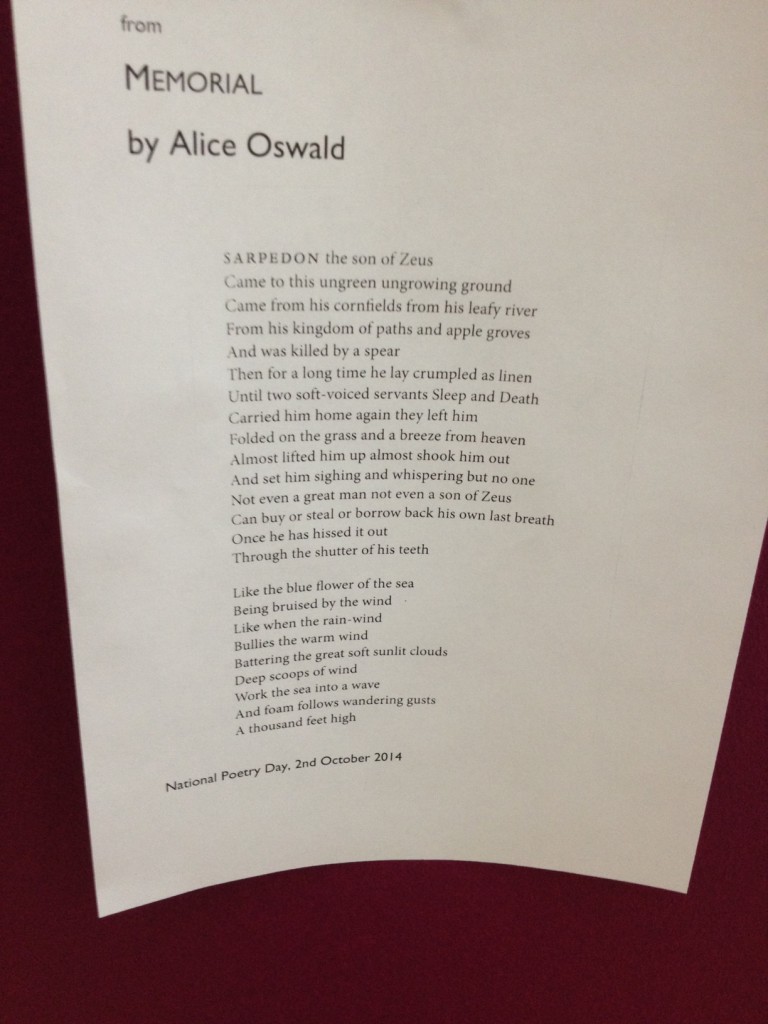
October 2, 2014, by Richard Rawles
Happy Classical National Poetry Day!
In great haste…
I spotted this morning, while procrastinating, that today is National Poetry Day!
This clearly needed to be marked, and I’m just back from some rapid poetry-bombing of the Humanities Building.
I felt that what was needed was some poetry in English (I wanted it to speak too everybody in the building) that had clear Classical interest, but was easily consumable by a poster (not something you need to take off the wall to read very slowly at a desk — more like a kind of ‘Poetry on the Underground’ thing…). But I didn’t have much time: I have teaching to prepare for this afternoon.
So for one poster I chose Ezra Pound’s poem ‘Papyrus‘, which is something a bit like (and a bit unlike) a translation of a Sappho papyrus fragment.
And my second choice, from very nearly a century later, was the death of Sarpedon, from Alice Oswald’s brilliant Iliadic re-imagining ‘Memorial‘.
But as I say, I chose very hastily. Suggestions of alternative poems or excerpts to fit the criteria suggested above are very welcome in the comments!
Happy National Poetry Day!
Featured image: Sarpedon’s body carried by Hypnos and Thanatos (Sleep and Death), while Hermes watches. Side A of the so-called “Euphronios krater”, Attic red-figured calyx-krater signed by Euxitheos (potter) and Euphronios (painter), ca. 515 BC. H. 45.7 cm (18 in.); D. 55.1 cm (21 11/16 in.). Formerly in the Metropolitan Museum of Art, New York (L.2006.10); Returned to Italy and exhibited in Rome as of January, 2008. Photo by Jaime Ardiles-Arce. Source: Wikimedia commons. http://en.wikipedia.org/wiki/File:Euphronios_krater_side_A_MET_L.2006.10.jpg accessed 23.01.2014



The first stanza of Flecker’s Oak & Olive has an excellent rhythm and gets all London-y/Athens-y/Gloucestershire-y (!), and then there’s the spine-tingling:
And there’s a hall in Bloomsbury
No more I dare to tread,
For all the stone men shout at me
And swear they are not dead;
And once I touched a broken girl
And knew that marble bled.
(The rest of it is a bit yawny though…)
Here it is: http://www.poemhunter.com/best-poems/james-elroy-flecker/oak-and-olive/